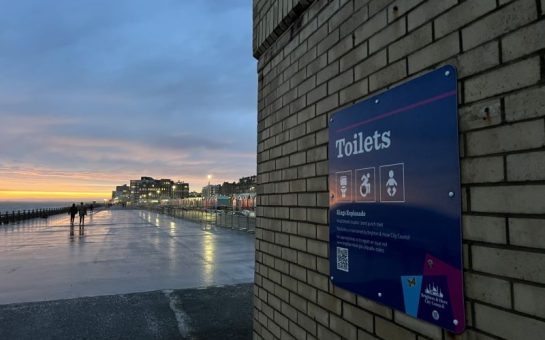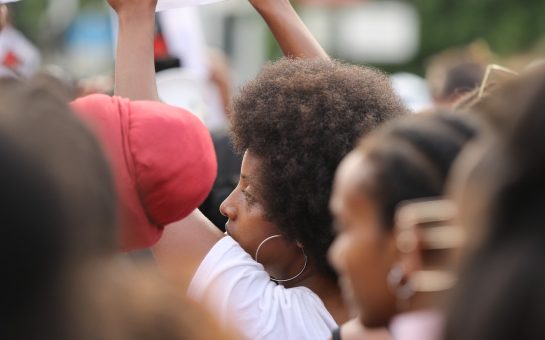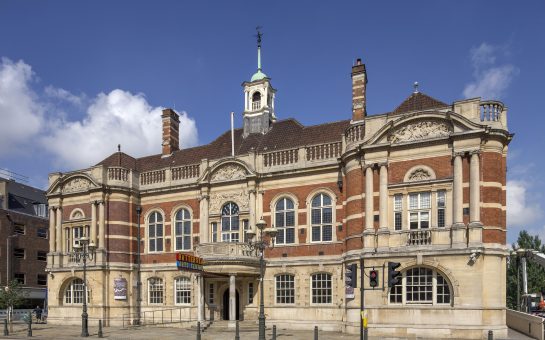The youth think tank, hosted by Wandsworth LIP, the borough’s youth council, allows participants to exchange ideas with local police officers.

Respectful, open-minded, smart, controlled and completely unbiased – sceptics might say these traits are too good to be true, especially if they are associated with the police force.
It’s a wish list of ideal characteristics that a group of young people would hope to find in the thousands of men and women who make up the 43 UK police forces.
The profile comes from a youth think tank project hosted by Wandsworth LIP, the borough’s youth council, where participants aged 11 and over are able to voice their opinions and exchange ideas with local police officers.
The latest meeting was held in March at the Training and Resource Centre, Alma Road. Attendees were invited to think about the first impressions they make and what kind of things they want to see in the police officers they meet.
Each meeting attracts new members from different backgrounds and in particular seeks to include ex-offenders, unemployed young people not in employment, education or training, as well as those who are at risk of offending.
The teens don’t have to commit to attending every meeting although if they do attend regularly they are rewarded – the first treat on offer is a chance to train some police dogs.
Media spokesperson and UK Youth Parliament member Rhamell Afflick, 18, is a regular at the think tank.
“When I saw the opportunity to work with police in Wandsworth, I thought it was exciting. I wanted to see what other young people think, especially after the riots. I also wanted to compare myself with other young people.
“The project has achieved a lot in getting young people together with the police. There need to be more informal meetings like this. Young people need to feel like they’re being listened to.”
The first meeting took place in December following the summer riots in which both young people and the police received particularly bad press.
The biggest barriers between young people and police identified were communication, education and empowerment and perceptions.
Rhammel added: “The police are seen as an authority, they need to be able to speak to people.
“They need to engage with people in different contexts and show that they’re human.”
Young people have offered to train members of the Wandsworth police force in how to speak to young people simply and clearly, without using jargon.
A team of social media-savvy teens also hope to teach officers how to navigate sites such as Facebook and Twitter so that they can reach out to young people more effectively.
Similarly, the list of “ideal” police characteristics may be used to shape the police force’s employment criteria.
However, not everyone attending the meeting in March was as optimistic about the project’s impact, particularly as a uniformed officer could not be there because of personal circumstances.
23-year-old Josh Tyrrant from Battersea said: “Honestly, I think this was a waste of time. The police don’t care.
“I think they’re doing this to try and show that they’re doing something without actually doing anything.”
There was a distinct feeling that things haven’t changed much in how the police deal with various communities – young or old – over the last few decades.
A 22-year-old man, wanting to remain anonymous, explained: “I was expecting active officers to be there, for questions to be asked and answers to be given.”
Both Josh and his friend are ex-offenders and feel that their experiences are quite different to the other teens attending.
A representative from the charity Carney’s Community said: “The idea is brilliant. You do need feedback from all types of young people, not just those who have been in trouble with the police.”
However, he emphasised that there need to be separate opportunities for ex-offenders to speak directly to police.
Youth Participation Officer Antonia Dixey, who facilitates the project with Wandsworth LIP, understands that some youths will be sceptical but feels the project has achieved many positive outcomes.
She said: “Some people expect instant change, which is never going to happen. These things take time and lots of small steps.
“Getting the police to agree to be trained by young people is a significant step.”
Antonia has high hopes for the project, funded jointly by Wandsworth Council and Wandsworth Police.
While there is a long way to go before the youth think tank achieves all of its aims, the process of consultation, discussion and recommendation is certainly a start to improving relations between the police and young people within Wandsworth.
Follow us on Twitter @SW_Londoner




